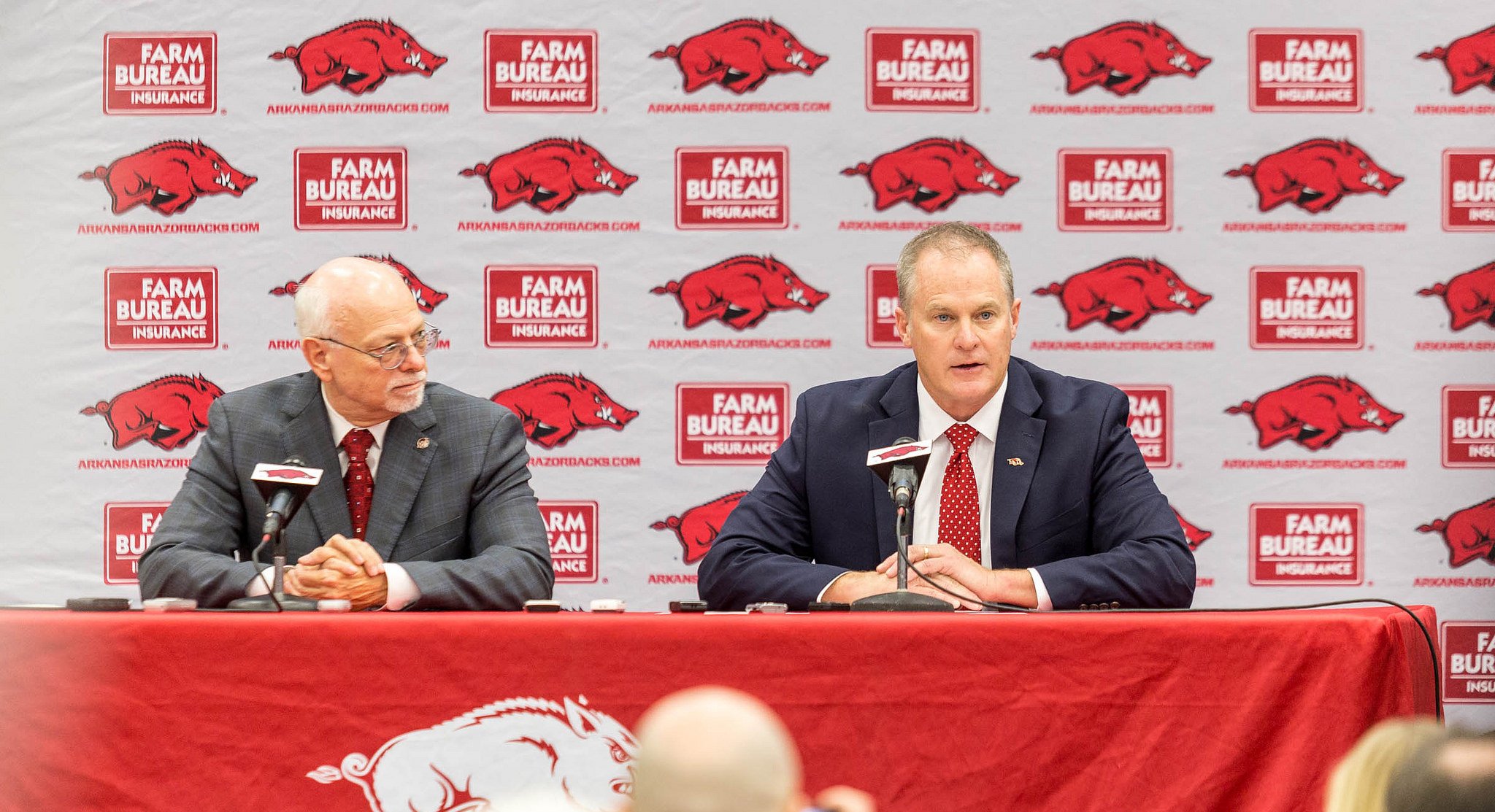
Hunter Yurachek (right) / File photo
Sometimes a meeting is just a meeting. Nothing all that new or groundbreaking comes out of it.
In a sense, that was the case with Monday’s meeting between Southeastern Conference brass in Birmingham.
It was their first in-person meeting since the coronavirus slam dunked college athletics in the spring during the SEC Basketball Tournament in Nashville, and the NCAA shut down all of college athletics in a matter or hours after the NBA suspended play when Utah Jazz player Rudy Gobert tested positive for COVID-19.
After the Ivy League, Big 10 and Pacific 12 made major announcements about the season last week, one can’t fault the expectation by many that SEC Commissioner Greg Sankey might follow suit.
Certainly, the SEC wouldn’t punt the season to the spring this quickly like the Ivy League did, but announcing that SEC would limit the upcoming season to conference games should a season be able to be played this fall seemed a distinct possibility.
However, the SEC didn’t reveal any cards or fold on Monday. It patiently held, just like the Big 12 and the ACC have done so far.
Sankey, who along with some SEC athletic directors thought the NCAA acted too rashly in March by suspending all college athletics for the school year in one swooping announcement, is biding what little time is left before making what may only be the first of several decisions about the football season in late July.
Late July has always been Sankey’s target date. As he has explained on more than one occasion, waiting as late as possible to make a decision will give him the most detailed amount of information in which to make an informed decision about how to proceed with the season or not.
Even if the SEC does plan to go to a conference-only schedule this fall, there’s no real advantage in making that public now, not when waiting a few more weeks might give the league more options or take some of them off the table.
“I’ve talked about late July. I’ve always observed the fundamental truth that if we can wait to make major decisions, we’re going to have better information,” Sankey said Monday afternoon on the “Paul Finebaum Show” which is televised by the SEC Network. “And so we’re going to be patient.”
Arkansas athletics director Hunter Yurachek also released a boilerplate-type statement after the meeting, but really what else could he say?
Today’s meeting was another productive step as we work collaboratively to face the many challenges related to this pandemic. The purposeful way in which the SEC has approached these complex issues has enabled us to review the most updated data as we focus on the health, safety and well-being of our student-athletes, coaches, staff members and fans.
As a self-sustaining athletics program at the University of Arkansas, we have an obligation to explore ways to mitigate the financial impact of those decisions, including our ability to continue to fully support the academic, athletic and personal development of our 465 student-athletes. Now more than ever, I am appreciative of the leadership of Commissioner Greg Sankey and UA Chancellor Joe Steinmetz.
– Hunter Yuracheck
While the SEC did decide to hold, the tone coming out of the meeting wasn’t exactly promising.
To put it another way, it’s third-and-long, and the coronavirus has its ears pinned back, licking its chops to sack college football. The SEC might need a minor miracle on the level of the Henry Heave to play at all this fall.
“We have to see a change in public health trends to build a comfort that we will have an opportunity to compete this fall,” Sankey said in the interview with Finebaum.
With coronavirus infections and hospitalizations surging all across the SEC footprint, it just doesn’t look good for a season at this moment. And that’s exactly why Sankey made the right decision to bide what little time is left to make a decision.
We don’t know what the coronavirus landscape is going to look like at the end of the month. A month ago, few were expecting such a significant surge by the virus in some areas that had only been lightly affected up to that point.
If the latest surge is leveling off in a few weeks, the SEC’s decision might be to push the season back a few more weeks and begin play in mid or late September or even early October.
Into the 1980s, the regular starting date for many college teams like Arkansas was the third weekend in September when there were few open dates and only 11 games.
Until the last week, I had been cautiously optimistic that there would be some sort of college football season this fall, and I still believe if there is any way for the SEC and other Power Five conferences to play this fall, that it will happen. There is just too much money at stake for it not to happen.
However, if infection rates, hospitalizations, and, yes, deaths continue to mount over the next three to six weeks, the unthinkable might just be the unfortunate outcome.
College football fans might have a long, hollow autumn without the sport that makes our world spin 365 days a year.

